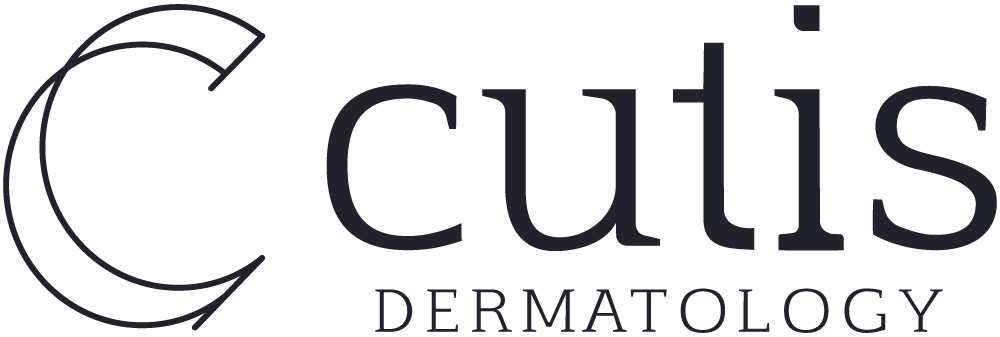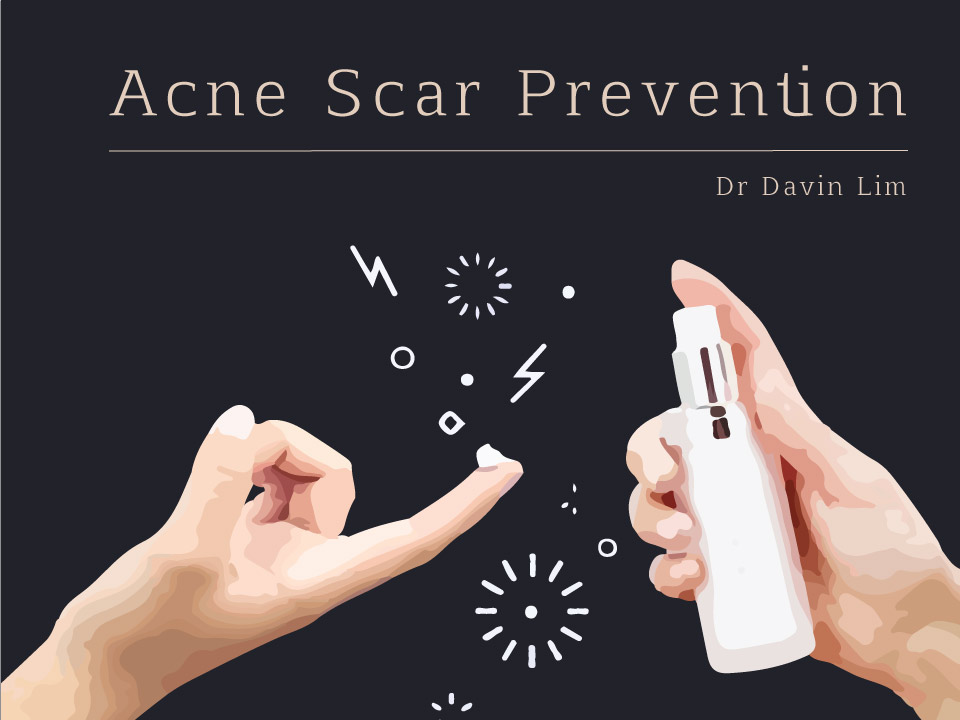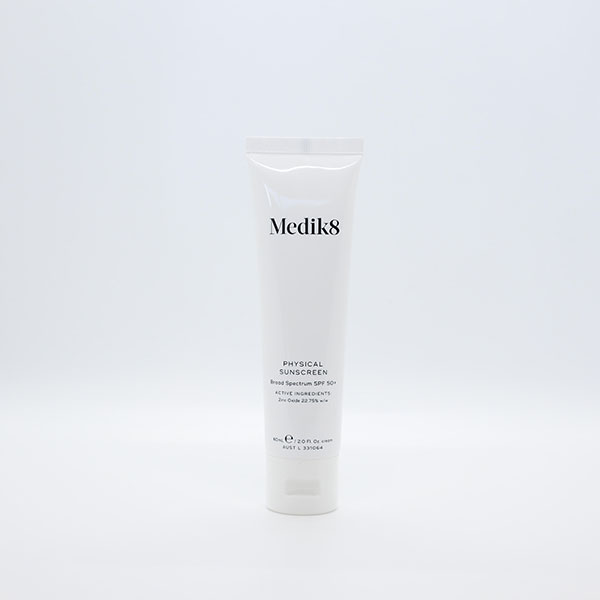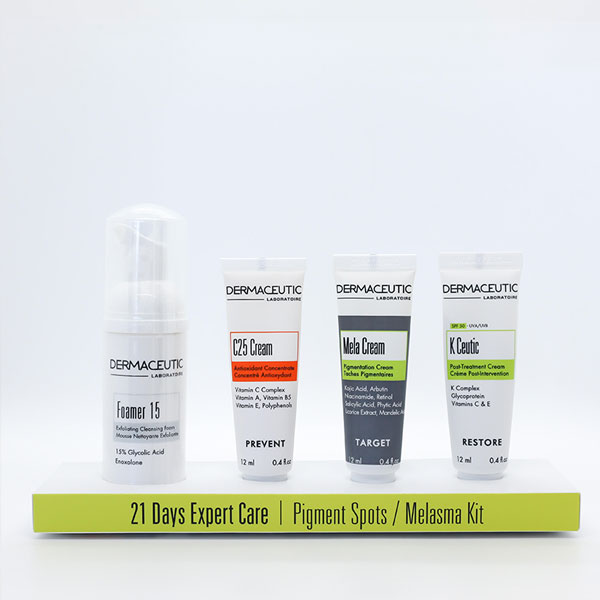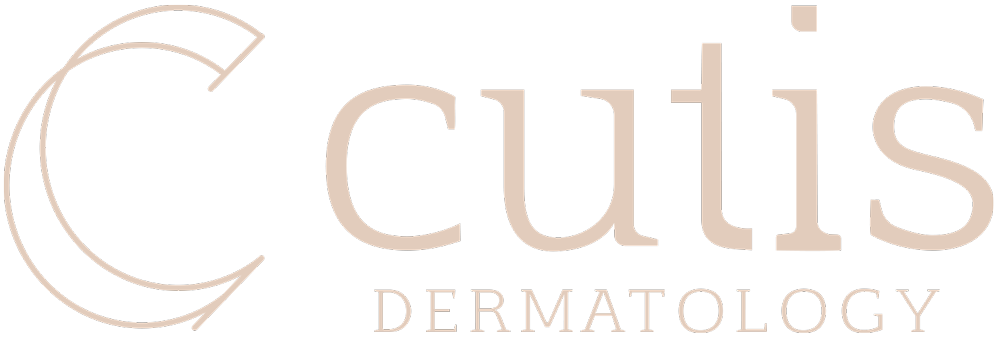Childhood acne can be difficult to manage. Dermatologists employ simple measures including good cleaning habits, prescription creams, chemical peels, light therapy, & in severe cases we consider systemic therapy. Early & effective treatments will prevent lifelong acne scars.
Key Points
- Some cases of acne will improve with cleansing, diet, & simple skin care
- BHA washes & azelaic acid are basics
- Phototherapy, extractions & chemical peels can be effective
- Dietary restriction of processed foods, sugar & dairy products can be effective
- Early treatment of acne can mitigate scarring
- Early treatment of acne scars can prevent future scarring
Acne in Children at a glance
Our results speak for themselves
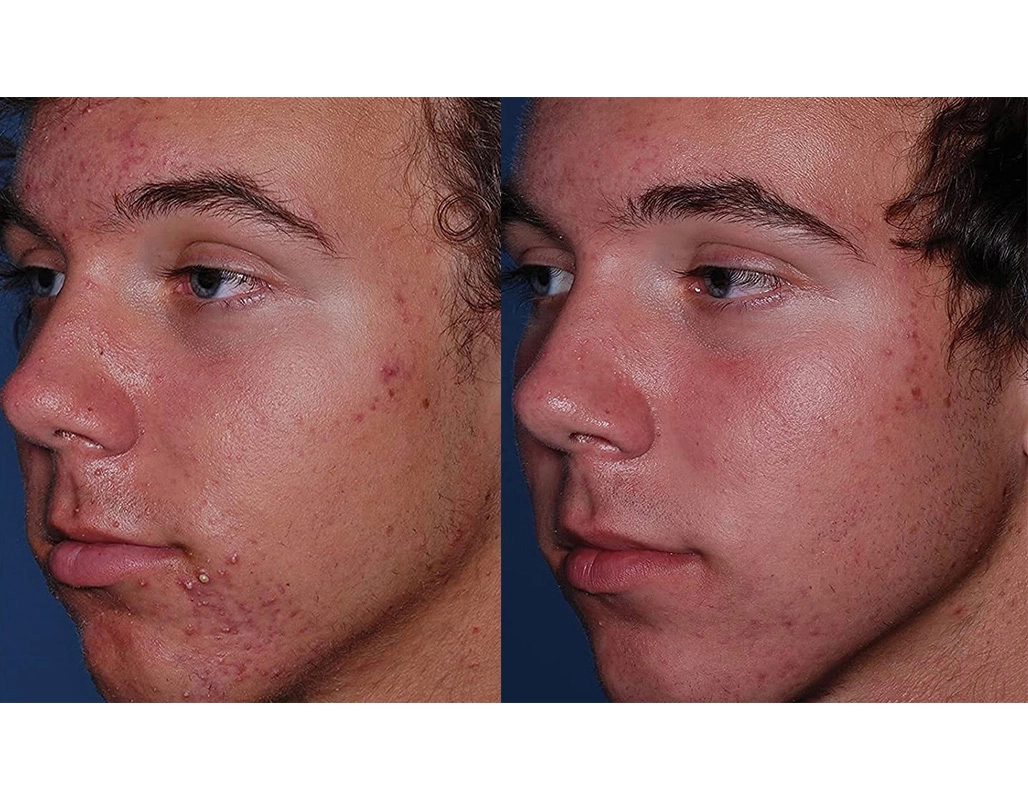
Before
After
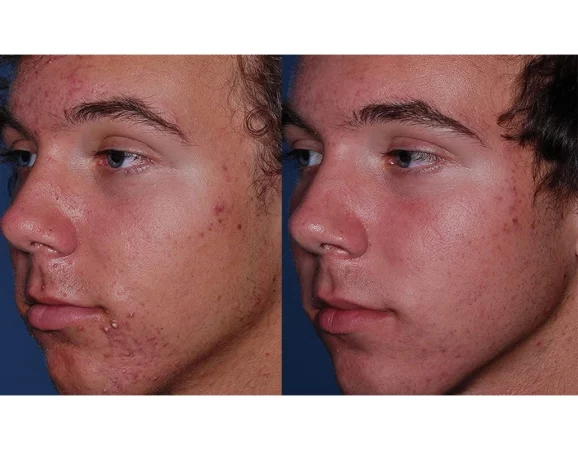
Topicals to treat acne, BHA based chemical peel to reduce blackheads & oil production
Ask us more about this treatmant
Preferred Consultation
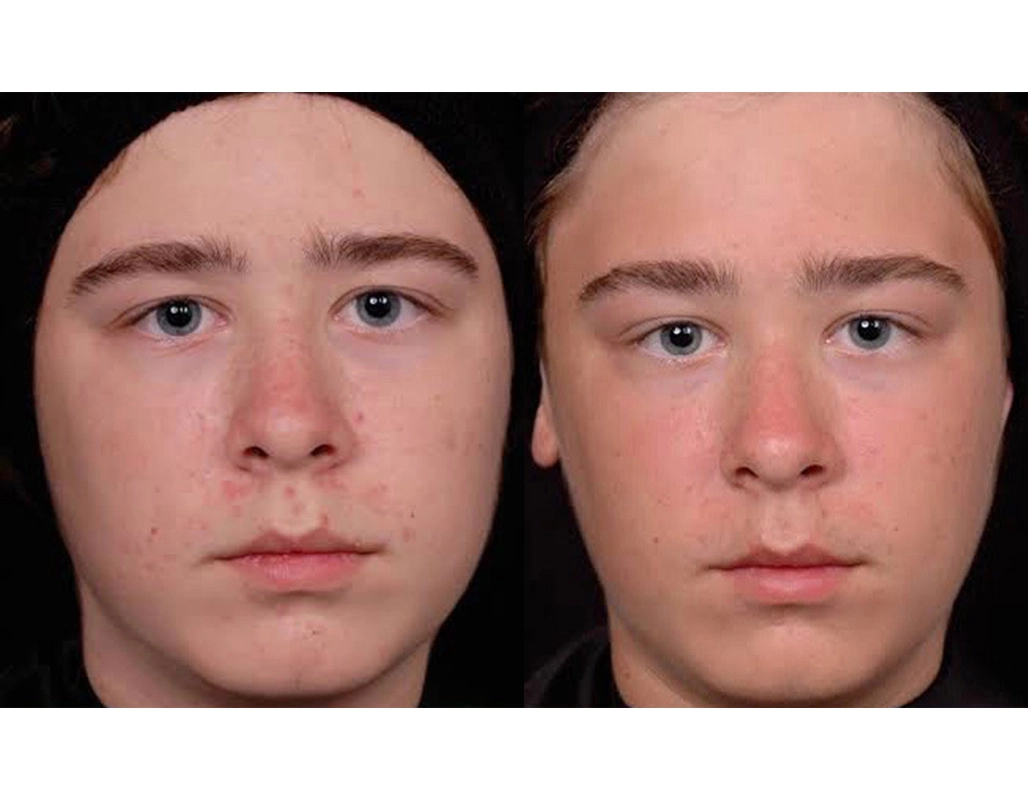
Before
After
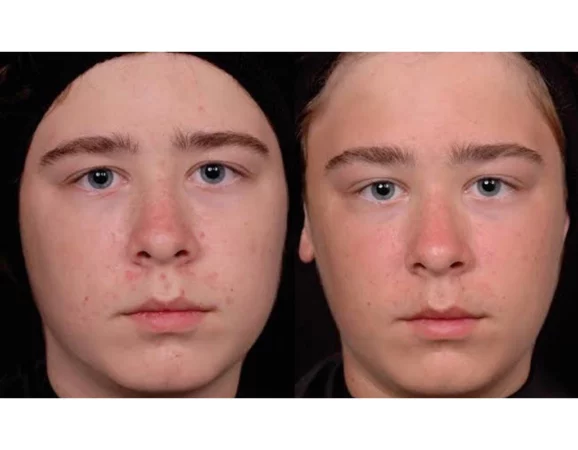
Topicals to treat acne, BHA based chemical peel to reduce blackheads & oil production
Ask us more about this treatmant
Preferred Consultation
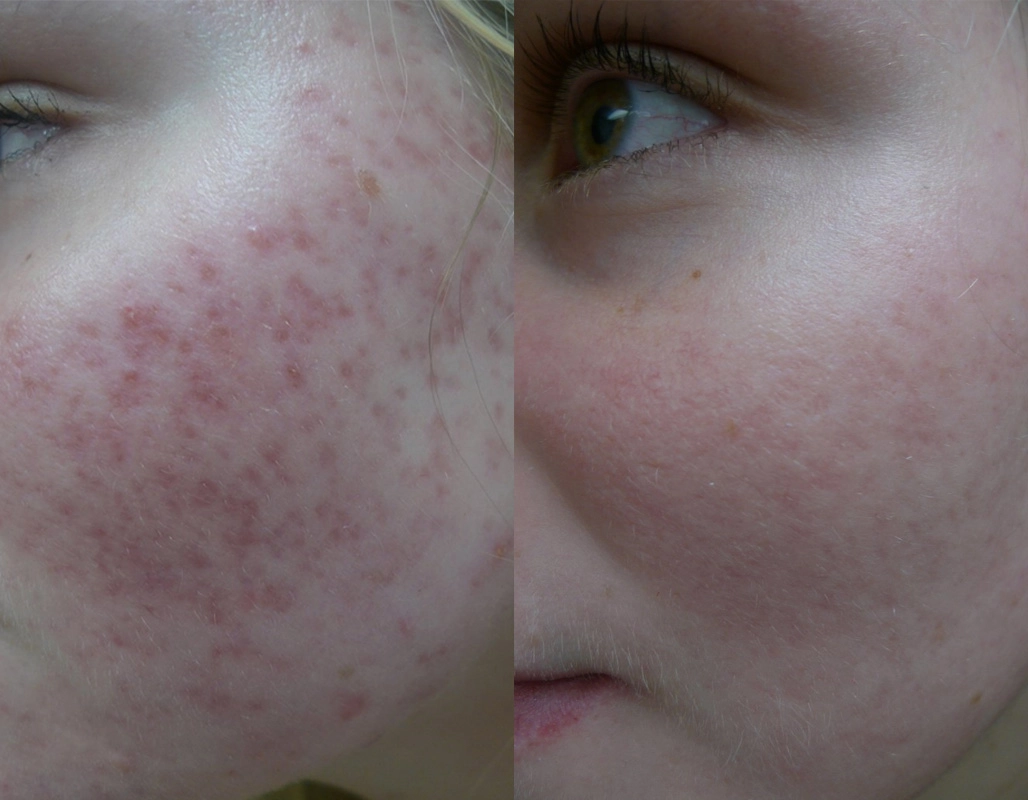
Before
After
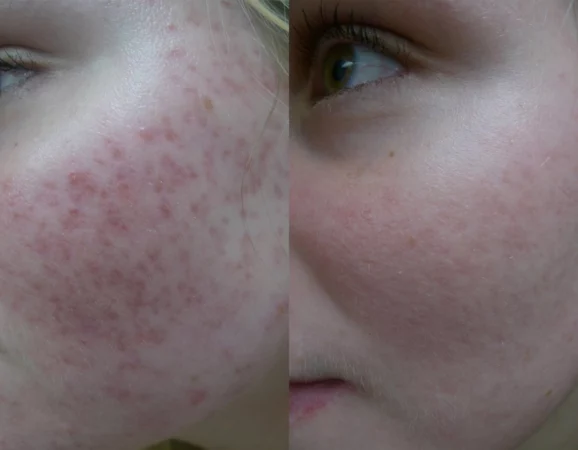
Topicals to treat acne, vascular laser therapy to reduce redness
Ask us more about this treatmant
Preferred Consultation
FAQs
Why do children get acne?
The cause of childhood acne is not fully understood. Acne is linked with:
- Hormonal changes during puberty
- Rising levels of male sex hormones known as androgens
- Androgens increase oil levels, in turn blocking the duct
- Blockage can result in pimples and cysts
- High levels of humidity and sweating can exacerbate acne
- Medicines, such as corticosteroids inhalers can worsen acne
- Neonatal acne is linked with hormone transfer via the placenta or via breast feeding
- Foods including dairy & high sugar intake / refined foods
What simple tips should you do to treat acne?
In the majority of cases, DIY home treatment will improve acne. Use this as a guide-
Cleansing: Do it twice a day. Sensitive skin? Cerave or La Roche cleansers are best. If there are blackheads, opt for salicylic acid, 2%.
Skin care: Azelaic acid is an all-rounder, 15-20%. Apply in the am and pm. Big pimples? Get some benzoyl peroxide 5%. Apply once at night.
Diet. Overlooked, underrated. Hard to follow as it entails no dairy, no processed foods, no sugar, no hormone fed beef, chicken, and fish. It is hard to follow as an adult, even harder in children.
Habits: Don’t pick, don’t squeeze. If it scabs, it scars. Consider acne hydrocolloid patches from Pharmacy Warehouse. They cost 10 cents each.
Shaving. Old enough to shave? Give both an electric and a safety razor to see which is more comfortable. If you use a safety razor, soften your facial hair thoroughly with soap and warm water. To avoid nicking pimples, shave as lightly as possible. Shave only when needed and always use a sharp blade.
How to assess if acne treatments are working?
Take a photo – front on, left and right side. Note the date, count the lesions. Start treatment, then take another photo in 6-8 weeks. If things are working, you should get a 25 to 30% reduction in acne spots. If you have little improvement, consider seeing a dermatologist.
The biggest problem with acne treatments in children and adolescents is compliance. If they are not bothered with acne, compliance is more difficult. You can check compliance by seeing how much product is left (unless they have outsmarted you and tipped it down the sink).
How do we manage acne in children?
We take into account factors including-
Age of the child. Some medications can affect teeth development, whilst others have side effects such as bone growth and emotional changes.
Clinical findings. We consider the severity of acne. Cystic scarring acne has a great impact on physical appearance and emotional well-being.
Family history. A strong history of acne may tip the decision one way.
Compliance. You can lead a horse to water. Compliance is easier with oral medication compared to topicals.
When should you consult a dermatologist?
Consider seeing a dermatologist if-
- Acne shows evidence of scarring. It’s far easier to treat acne than it is to treat scars.
- If acne does not improve after 8 weeks of therapy.
- Your child is distressed with acne. Teenage years can be hard, and teasing is unfortunately a problem in the school years.
Our pediatric dermatologists are experts in managing all forms of acne, ranging from neonatal acne, through to adolescent acne. We are experienced in the use of nonpharmacologic methods such as phototherapy, topicals & chemical peels.
What are our non-pharmacological ways to treat acne?
We employ both prescription and non-prescription methods to treat acne.
Non-tablet ‘natural’ methods include-
- Phototherapy with red light, a good all-rounder. Takes 10 minutes to perform, painless.
- BBL Hero Blue light. Best for pimples & zits, slightly stingy.
- Kleresca (light + photosensitiser). As above.
- Salicylic acid peels, best for blackheads.
- Extractions (manual + laser assisted), best for deep cysts.
Is diet important?
Absolutely. This acne trigger is frequently overlooked & under-rated. In the best-case scenario, diet resolves acne, worst case? Everyone is healthier & you have given it a shot. A few pointers-
- Avoid ALL dairy. Includes milk, yoghurt, & cheese. This includes milk products.
- Avoid sugar.
- Avoid refined foods, if it’s processed, it’s out.
- There can be no ‘cheat days’, you need to be on a super strict diet
- It takes 2-6 weeks to work
It is hard to be on a super restrictive diet, however if you are inclined to natural remedies, this is a good starting point.
What is the stance on acne medication and children?
Super hard question to answer as the risk benefit ratio needs to be carefully considered for each case. Your dermatologist will consider factors such as age, height, bone density & development, as well as the clinical findings.
Acne medication is not contraindicated in children, we do prescribe it in exceptional cases of severe cystic acne, recalcitrant to all other treatments.
What other treatment options are there?
Some natural products may be useful in treating acne however they are not as effective as medical management. These include-
- Tea tree oil
- Green tea extract
- Witch hazel
A sensible starting point is to combine a simple salicylic acid wash, and azelaic acid, and ensure good eating habits. If you are after home remedies, ensure that treatments are safe. For example, apple cider vinegar is notorious for skin burn, whilst tea tree oil can give contact dermatitis
How can you prevent or reduce acne scars?
The biggest gain is scar mitigation, namely prompt, safe & most importantly effective management of acne. From there we use different energy devices depending on scar age & morphology. They include-
- Tixel: generates short contact heat, ideal for atrophic scars.
- Vbeam lasers treats redness & PIE scars
- Pico lasers: best for brown or hyperpigmented scar types
